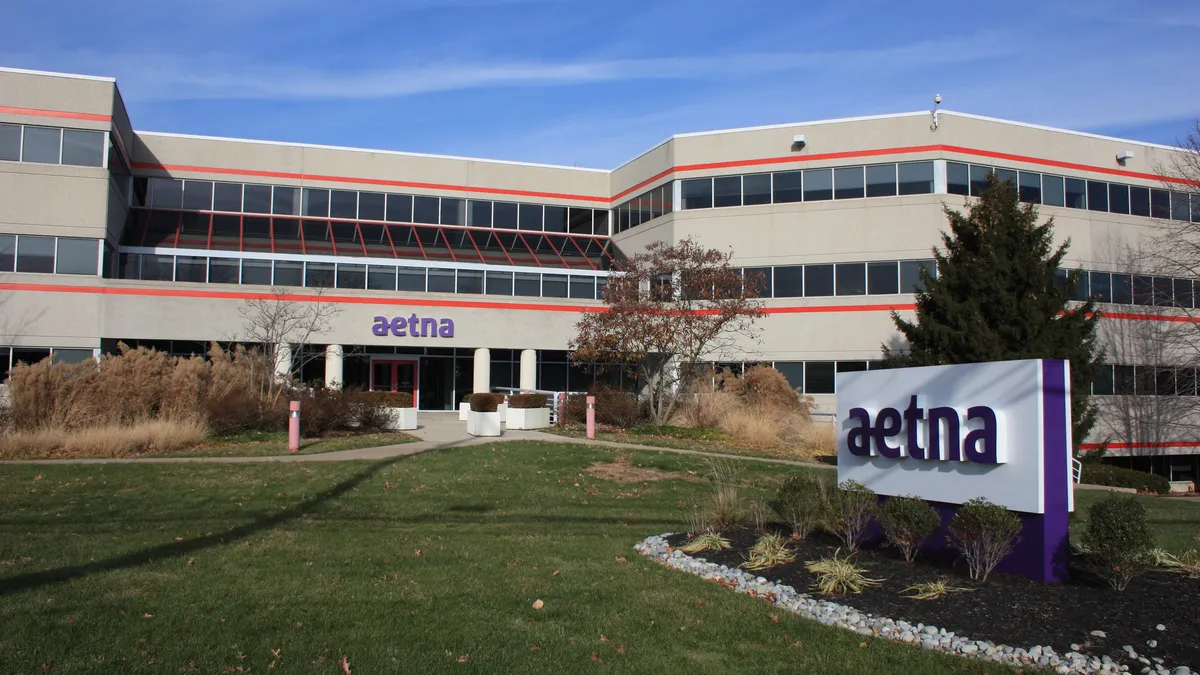Dive Brief:
- Aetna is developing a specialty provider network focused on suicide prevention in partnership with mental health education platform Psych Hub, Aetna parent company CVS Health announced June 21.
- The partnership will give providers access to an "evidence-based curriculum" co-designed by Aetna and Psych Hub, CVS Health said. It will include e-learning courses that can allow providers to become certified in suicide prevention.
- "Our industry must leverage innovations that make healthcare education accessible to providers on the front lines combating the global mental health and addiction crisis," Marjorie Morrison, CEO at Psych Hub, said in the CVS Health statement.
Dive Insight:
Insurers, employers and care providers alike have scrambled to deal with the mental health impacts of an often stress-inducing 16 months.
Early on in the COVID-19 pandemic, HR observers identified the importance of mental health benefits, such as employee assistance programs, counseling and other resources, in ensuring employee health and safety. But concerns about conditions like anxiety and depression have only grown since then. The American Psychological Association declared in October 2020 that stress related to 2020's events were "seriously threatening the mental health of our country, particularly our youngest generation"; the organization's study found 78% of U.S. adults said the pandemic was a significant source of stress in their lives.
As a result, a number of organizations have increased their mental health offerings in the past year. Among insurers, Cigna added behavioral health coaching as an in-network benefit to some 14 million customers via a partnership with health services provider Ginger. In May, Walmart announced the expansion of no-cost counseling solutions for workers and their family members, including access via text message, chat, video or voice.
Virtual care solutions have been a growing part of employers' benefits strategies in the past year, and some sources who previously spoke to HR Dive have indicated that virtual care may be even more effective for mental health and other specialties after the pandemic than before it. Aside from benefits programs, employers also can look to external organizations, such as community nonprofits, for assistance in building psychologically safe workplaces.
Even in the years prior to the pandemic, suicide has been a growing problem in the United States, according to data from the Centers for Disease Control and Prevention. Suicide rates increased 33% between 1999 and 2019, and it is the second leading cause of death for people ages 10 to 34, according to the agency.
But CDC emphasizes that there are a number of preventative strategies, including strengthening economic support and access to care, creating protective environments and teaching coping and problem-solving skills, among others.
The National Suicide Prevention Lifeline, (800) 273-8255, provides 24/7, free and confidential support for anyone in distress, in addition to prevention and crisis resources. The service also provides free access to online chat.












